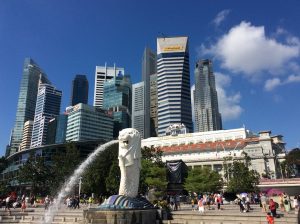
For the first time in decades, the government has an extraordinary amount of political license available to expend on addressing key social, environmental and infrastructural problems that have become a handbrake on progress in New Zealand. The dual public health and economic disasters visited upon us have provided an unprecedented impetus to unlock the public purse. It is also a once in a lifetime opportunity to transform the economy towards a cleaner, more inclusive, lower carbon future. Innovators and entrepreneurs must be part of that conversation.
With the exception perhaps of the fibre rollout, it is widely understood that there has been decades of under-spending on key infrastructure which forms the foundations of the wider economy. Resilient infrastructure and fostering innovation also comprises part of the United Nations sustainable development goals, to which New Zealand is a signatory. So as part of recovery investment, we are hearing that there will be government led co-funding for “shovel-ready” infrastructure projects. Debt constrained local bodies are now scurrying to dust off previously paused plans for roads, cycleways, water pipes and much more. Useful works that will provide much needed short term employment – but hardly transformational.
We have also recently seen a proposal from the Greens calling for a $1 Billion investment in the natural environment. The project involves regeneration of wetlands, protection of waterways and restoration of native bush. Apart from providing instant employment, the long term environmental returns would be substantial. The crisis has also illuminated shortcomings and under-investment in the health sector. It is clear that there is room for funding some improvements. There will no doubt be numerous other programmes and waves of investment arising in the future. How can this public investment generate the best return to our economy at a time when external trade is problematic?
With support from government, our innovation ecosystem has grown vastly during the last two decades, so there is plenty of talent available to work in partnership on these problems. Government agencies will require substantial additional capability to quickly deliver on these initiatives and to get cash out the door and circulating within the economy. A collaborative approach involving the rapid roll out of partnerships with local bodies, social enterprises and other businesses will be required. This calls for a bold evaporation of the the risk aversion and gate-keeping that so often derails and delays promising and innovative partnerships with government.
What if we devolved responsibility for identifying, funding and managing discrete environmental projects to regional public-private innovation partnerships? How about an education technology incubator that sits alongside a teacher training institution? What if we had a private sector centre of excellence for IoT and AI tech embedded within the proposed public works agency? How about a FinTech entrepreneur programme engaged with Treasury?
Let’s re-purpose our innovation ecosystem, in partnership with the State, onto solving the really big social, environmental and technological problems confronting us currently. GovTech on steroids, with meaningful funding, actionable deliverables and value creation through protecting and growing any associated intellectual capital.
Christchurch based Carl Pavletich had already been looking at transition processes within organisations when the crisis hit. He realised that, like during the earthquakes, there had once again been a catastrophic transition forced upon us. “Instilling a startup mindset may be our best emergent strategy to adapt”, he says. Paveletich developed Spire, a simple model that guides rapid prototyping of organisational responses and keeps all stakeholders in the loop. This is the kind of thinking that should inform and accelerate engagement between government and the innovation community.
So as the government grapples with how to breathe life back into a dormant post-virus economy, we must ensure that innovation and entrepreneurship are at the forefront of progress. Beyond that, we actually need to rethink how we view the structural aspects of the economy. Glass, bitumen and concrete infrastructure are important, but as futurist and serial entrepreneur Nick Gerritson suggested recently, we all need to start thinking of innovation as economic infrastructure. If the goal is transformational change plus avoiding a terminal economy – the public sector must get onboard with this philosophy, fast.
Paul Spence is a commentator and serial entrepreneur, a recently exited co-founder of New Zealand based technology venture iwantmyname, a co-founder and director of Creative Forest and principal at GeniusNet Research. You can follow Paul on Twitter @GeniusNet or sign up for a free weekly digest of startup, tech and innovation related events curated by him through New Zealand Startup Digest.

 If you are a fan of romantic comedies you may recall a scene in last year’s hit movie Crazy Rich Asians in which friends join the happy couple at an outdoor food centre for an evening of laughs, beer and Singaporean food. Amerasian Rachel is trying her best to fit in but is caught off guard by a particularly spicy mouthful of Laksa, much to everyone’s amusement. In some ways this typifies the visitor experience in Singapore. At first it can be hard to find your place in the cultural melange, but there are surprises around every corner and people are friendly once you’ve been properly introduced – so it’s very much worth persisting.
If you are a fan of romantic comedies you may recall a scene in last year’s hit movie Crazy Rich Asians in which friends join the happy couple at an outdoor food centre for an evening of laughs, beer and Singaporean food. Amerasian Rachel is trying her best to fit in but is caught off guard by a particularly spicy mouthful of Laksa, much to everyone’s amusement. In some ways this typifies the visitor experience in Singapore. At first it can be hard to find your place in the cultural melange, but there are surprises around every corner and people are friendly once you’ve been properly introduced – so it’s very much worth persisting. A recent article in the Washington Post implored society to
A recent article in the Washington Post implored society to 